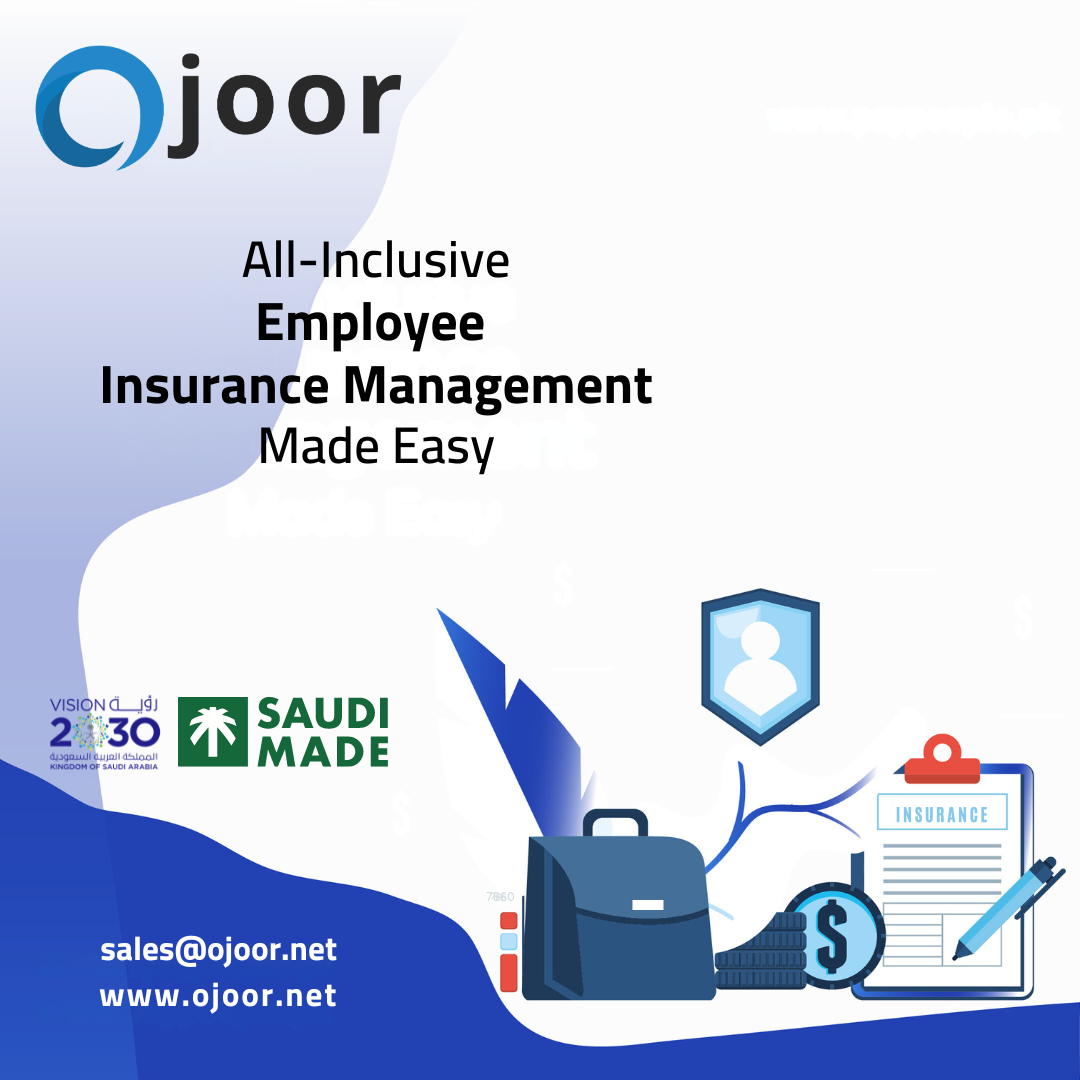Ojoor # 1 is one of the top HR system evolving business landscape, organizations recognize the critical importance of investing in employee training and development to remain competitive and drive growth. Human Resource (HR) systems play a pivotal role in supporting training initiatives by providing robust platforms for planning, delivering, and tracking training programs. In this article, we’ll explore how HR systems support training and development efforts, the benefits they offer, and best practices for leveraging HR systems to enhance workforce skills and capabilities.
Click to Start Whatsapp Chatbot with Sales
Mobile: +966547315697
Email: sales@Ojoor.net
Ojoor #1 HR system

Training Needs Assessment
HR system facilitate the process of identifying training needs by capturing and analyzing employee performance data, skills gaps, and competency assessments. Through integrated performance management modules, HR systems enable HR professionals and managers to conduct performance appraisals, set development goals, and identify areas for improvement. By analyzing training needs data, HR systems help organizations prioritize training investments, align training programs with strategic objectives, and tailor learning experiences to meet the diverse needs of employees across different roles and levels within the organization.
Training Program Management
HR systems serve as comprehensive platforms for managing training programs from planning and scheduling to delivery and evaluation. Through learning management system (LMS) functionalities, HR systems enable administrators to create and catalog training courses, develop learning paths, and assign training modules to employees based on their roles, departments, and development goals. Advanced features, such as course authoring tools, content libraries, and multimedia support, facilitate the creation of engaging and interactive learning experiences that cater to different learning styles and preferences.
Training Delivery and Accessibility
HR systems provide flexible and accessible delivery mechanisms for delivering training content to employees anytime, anywhere. With cloud-based and mobile-friendly platforms, HR systems enable employees to access training materials, e-learning modules, and virtual classrooms from desktops, laptops, tablets, and smartphones, ensuring that learning opportunities are available on demand and accessible to remote and distributed workforces. By offering self-paced learning options, live webinars, and virtual instructor-led training (VILT) sessions, HR systems accommodate diverse learning preferences and empower employees to take ownership of their learning journey.
Compliance Training and Certification
HR system support compliance training initiatives by automating the administration of mandatory training programs, regulatory certifications, and industry-specific requirements. With built-in compliance tracking features, HR systems monitor employee completion of required training modules, track expiration dates for certifications, and generate compliance reports to demonstrate regulatory compliance to auditors and regulatory authorities. By automating compliance reminders, notifications, and recertification processes, HR systems ensure that employees stay up-to-date with relevant regulations and industry standards, mitigating risks and liabilities associated with non-compliance.

Skills Development and Career Pathing
Payroll Management facilitates skills development and career pathing by providing employees with access to personalized learning resources, competency assessments, and career development tools. Through competency management modules, HR systems enable employees to identify their strengths, areas for development, and career aspirations, and align their learning goals with organizational objectives. By offering self-assessment tools, skills gap analyses, and recommended learning paths, HR systems empower employees to proactively pursue skill development opportunities, explore career advancement options, and chart their professional growth within the organization.
Training Evaluation and Feedback
HR systems enable organizations to measure the effectiveness of training programs and collect feedback from participants through built-in evaluation and survey tools. With automated course evaluations, quizzes, and assessments, HR systems capture feedback on training content, instructors, and learning outcomes, enabling administrators to assess training impact and identify areas for improvement. By analyzing training evaluation data, HR systems help organizations refine training strategies, optimize course content, and enhance the overall quality of training experiences to drive better learning outcomes and employee engagement.
Training Cost Management
HR systems provide tools for tracking training costs, budgets, and return on investment (ROI) to ensure that training investments align with organizational priorities and deliver measurable value. With budgeting and expense tracking features, HR systems enable administrators to allocate resources, monitor training expenditures, and analyze the cost per participant for each training program. By generating training cost reports, ROI analyses, and cost-benefit assessments, HR systems help organizations make informed decisions about resource allocation, prioritize high-impact training initiatives, and demonstrate the business value of training investments to key stakeholders.
Integration with Learning Resources
Recruitment process integrate seamlessly with external learning resources, content providers, and online training platforms to offer a wide range of learning opportunities to employees. By partnering with external training providers, MOOC (Massive Open Online Course) platforms, and professional associations, HR systems expand the scope of available learning content, provide access to specialized training programs, and offer industry-recognized certifications to employees. Integration with external resources enhances the diversity and richness of learning experiences, fosters continuous learning cultures, and enables employees to acquire relevant skills and knowledge to stay competitive in their respective fields.
Gamification and Engagement
HR systems incorporate gamification and engagement features to enhance the effectiveness and engagement of training programs. Through gamified learning modules, leaderboards, badges, and rewards, HR systems motivate employees to participate in training activities, complete courses, and achieve learning milestones. Gamification elements add a fun and competitive element to training experiences, encourage healthy competition among learners, and reinforce desired behaviors and learning outcomes. By leveraging gamification, HR systems increase learner engagement, retention, and satisfaction, making training programs more enjoyable and effective for employees.
Continuous Learning and Development
HR systems support a culture of continuous learning and development by providing employees with ongoing access to learning resources, microlearning modules, and just-in-time training opportunities. With personalized learning recommendations, curated content libraries, and push notifications, HR systems keep employees informed about new training offerings, industry trends, and skill development opportunities relevant to their roles and career aspirations. By promoting continuous learning, HR systems foster a culture of innovation, adaptability, and growth mindset within the organization, enabling employees to thrive in a rapidly changing business environment.
Conclusion
In conclusion, HR systems play a vital role in supporting training and development initiatives by providing comprehensive platforms for planning, delivering, and tracking training programs. From identifying training needs and managing training programs to evaluating learning outcomes and promoting continuous learning, HR systems offer a wide range of functionalities and features that empower organizations to enhance workforce skills, drive employee engagement, and achieve strategic objectives. By leveraging HR systems effectively, organizations can create a culture of learning and development, cultivate talent, and gain a competitive edge in today’s dynamic business landscape.
Click to Start Whatsapp Chatbot with Sales
Mobile: +966547315697
Email: sales@Ojoor.net
How does an HR system support training initiatives? similar software solutions prices were updated on 2025-07-12T02:13:12+00:00 in Saudi Arabia in Mecca, Medina, Riyadh, Khamis Mushait, Yanbu, Jeddah, Dammam, Unaizah, Uqair, Ha’il, Ta if, Al Bahah, Dhahran, King Abdullah Economic City, Najran, Diriyah, Qatif, Khafji, Jubail, Abqaiq, List of Cities and Towns in Saudi Arabia, Ras Tanura, Turubah, Jazan Economic City, Knowledge Economic City, Medina, Khobar, Abha, Tabuk, Saudi Arabia, similar software solutions prices were updated on 2025-07-12T02:13:12+00:00 We also provide in Saudi Arabia services solutions company in Hafar Al-Batin, Udhailiyah, Al-Awamiyah, Hofuf, Hautat Sudair, Buraidah, Tayma, Duba, ‘uyayna, Saihat, Al-Kharj, Al-ula, Jizan, Rumailah, Ar Rass, Arar, Shaybah, Al Majma’ah, Rabigh, Dhurma, Haradh, List of Saudi Cities by Gdp Per Capita, Badr, Sudair Industrial City, Baljurashi, Shaqraa, Al-Khutt, Habala, Ad Dawadimi, Dawadmi, Layla, similar software solutions prices were updated on 2025-07-12T02:13:12+00:00 Price is SAR 100 and this was updated on updated on 2025-07-12T02:13:12+00:00 similar How does an HR system support training initiatives? software solutions prices were updated on 2025-07-12T02:13:12+00:00 in Saudi Arabia in Haql, Afif, Al-Abwa, Farasan, Al-Jaroudiya, Thadig, Al-Thuqbah, Al Wajh, Almardmah, Al-Zilfi, Muzahmiyya, Prince Abdul Aziz Bin Mousaed Economic City, Tharmada’a, Skaka, Um Al-Sahek, Sharurah, Tanomah, Bisha, Dahaban, Al Qunfudhah, Qurayyat, Saudi Arabia, Ha’ir, as Sulayyil, Al Lith, Turaif, Al-Gway’iyyah, Samtah, Wadi Ad-Dawasir, Az Zaimah, Safwa City, Jalajil, Harmah, Mastoorah, Hotat Bani Tamim, Jabal Umm Al Ru’us, Rafha, Qaisumah, Al-Ghat, Hajrah, Al-Hareeq. Excerpt: Jeddah (also spelled Jiddah, Jidda, or Jedda; Arabic: Jidda) is a Saudi Arabian city located on the coast of the Red Sea and is the major urban center of western Saudi Arabia similar software solutions prices were updated on 2025-07-12T02:13:12+00:00 Price is SAR 100 and this was updated on updated on 2025-07-12T02:13:12+00:00
20-2-2024
